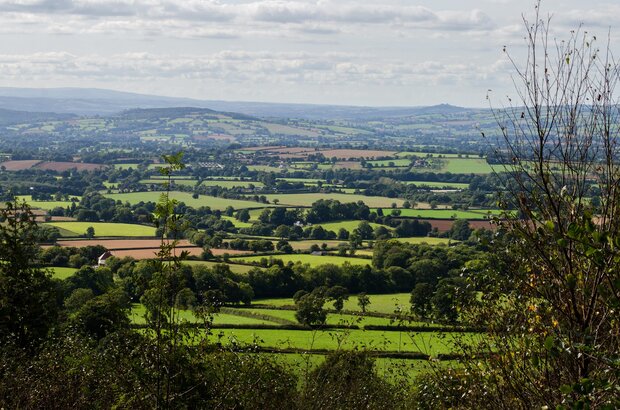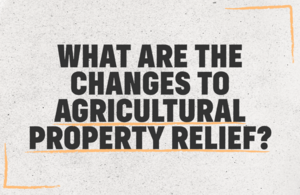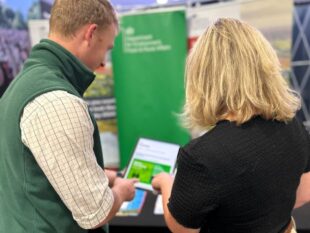
We recently wrote to everyone with Environmental Stewardship agreements to outline some changes that we plan to introduce in 2023.
Rather than offering agreement holders an extension of a single year, we're offering extensions of 5 years.
This change, shaped by feedback, gives greater certainty and clarity to people in existing agri-environment agreements.
It also removes the burden of having to apply for an extension each year.
We already offer 5-year agreements for existing Countryside Stewardship holders.
Higher Level Stewardship agreement extensions
Higher Level Stewardship (HLS) is part of the Environmental Stewardship scheme. It is the predecessor to Countryside Stewardship.
At the moment, there are approximately 8,500 HLS agreements. They are still delivering important environmental benefits on our most valuable habitats. For example, on Sites of Special Scientific Interest (SSSIs).
Under European Union rules we could only offer annual extensions for HLS agreements.
Since 2019, we've offered annual extensions to HLS agreements in cases where agreements continue to deliver environmental outcomes.
Those in Environmental Stewardship told us that although annual extensions are welcome, longer extensions offer greater flexibility and certainty.
Not only does it reduce bureaucracy, it ensures the continued delivery of environmental benefits as we roll out our new environmental land management schemes.
For that reason, from 2023 onwards, we will offer existing agreement holders extensions of 5 years.
In exceptional circumstances, agreements could be extended for fewer than 5 years.
Moving to new schemes
Farmers have told us that they want to secure what they've delivered and do even more to build on the environmental benefits they’ve achieved.
In response to this, we're taking a more flexible approach. From 1 January 2023, all CS and HLS agreement holders will be able to leave their agreements early, without penalty, if they are offered a place on another environmental scheme.
For example, if you're an HLS agreement holder and you apply for CS in 2024 or if you're an HLS/CS agreement holder and you're offered a place in Local Nature Recovery.
By doing this, we can support people to transition to the new schemes and maintain environmental delivery on the ground.
We plan to roll Local Nature Recovery out gradually. It will be offered, in full, from the end of 2024. This flexibility gives continued stability up until then. It has no impact on our roll out plans.
A more flexible approach to checks
We listened to feedback from users and updated our approach to scheme breaches. Last year, we introduced new rules around scheme controls, inspections and penalties. These apply to agreements starting in 2021 or later.
Agreements starting before 2021 were, at that time, still covered by EU rules. We were still spending EU funding on the scheme, under the terms of the Withdrawal Agreement.
From January 2023, we are able to bring all existing HLS and Countryside Stewardship agreements onto these new domestic terms.
This means that our new flexible, supportive approach to controls will apply to all agreements from 1 January 2023.
Next Steps
We've written to existing Environmental Stewardship agreement holders to let them know about these changes so they can prepare.
Later this year, we will send further information to those who could benefit from these changes in 2023.
If your Environmental Stewardship agreement does not end in 2023, we will write to you to set out your options for extensions later in 2023 or 2024. We'll also share more details for the extension arrangements for your agreement.
As mentioned, our new environmental land management schemes will be fully rolled out by the end of 2024.
We will provide a smooth way for those in existing agreements to transfer to the new schemes. Anyone in an existing agreement can also enter into the new environmental land management schemes so long as the actions are compatible and we’re not paying twice for the same actions.
For updates on our work, do subscribe to the Future Farming blog.




 The
The 
10 comments
Comment by Nina Bell posted on
Will payments -for example Ed Access payments - increase to be in line with other schemes? Currently CSS pays £309 for an educational access visit and HLS only £109
Comment by The Team posted on
Hi Nina,
Thanks for your question. HLS is no longer open for applications or scheme changes. That said, we're in the very early stages of considering changes to Countryside Stewardship and have taken note of your comment.
Best wishes,
The Team
Comment by Denise Seely posted on
My CS HT scheme started in Jan 2022.
'Agreements starting before 2021 were, at that time, still covered by EU rules.' So NOT mine.
'our new flexible, supportive approach to controls will apply to all agreements from 1 January 2023.' So NOT mine.
Or do I not understand?
But why not start from 1 Jan 2022? I have been running CSHT schemes off and on for nearly 20 years but am still fraught with anxiety when I THINK I may be in breach of the rules.
Comment by The Team posted on
Hi Denise,
As you have an agreement that started in 2022, you are already on the new domestic funding and its terms and conditions which came into effect from 1 Jan 2021.
So your terms and conditions and the scheme manual for that scheme year (2022) already reflect the changes.
What this post addresses is the fact that people whose agreements started before 1 Jan 2021 (on EU terms) are shortly to have their terms and conditions changed from 1 Jan 2023 to more closely align with the domestic version of the scheme.
So you don't need to worry. You are already on domestic terms and conditions and so already have the benefits of the changes. These include the removal of additional penalties on top of reductions etc that existed in the EU funded scheme and the ability to leave early without recovery to join the new environmental schemes.
You can read about your scheme conditions in the 2022 manual, here: Countryside Stewardship: https://www.gov.uk/guidance/countryside-stewardship-higher-tier-manual-for-agreements-starting-on-1-january-2022
We hope this helps,
Best wishes,
The Team
Comment by Denise Seely posted on
Thank you 'team'. Thats a relief. So here are 2 examples of what I consider an example of unreasonable inflexibility.
Example 1
Whitton is running a CSHT scheme, and is also on the point of being accepted for a EWCO woodland. The woodland application started in dec 2020. Fencing is in both EWCO and CSHT schemes.
I am told by my fencing contractors that old telegraph poles (replaced recently and stored in a dry hemmel) are superior for straining posts to purchased ones. I checked the NPG spec for the poles and saw that they were treated to the same spec. The NPG poles have a bigger diameter. The FC will not commit and the CSHT advisor tells me that some inspectors rule out using telegraph poles thus I will lose the grant. So I will therefore use purchased ones. Bonkers!!
Example 2 CSHT.
Whitton is rebuilding drystone walls BN12. Fine. I also applied for BN13 (3.60) but feel that I should use FG2 £4.90) because most of the wall is built into the field which is higher than the road which abuts the field. I am happy to claim £3.60, but this seems to be a difficult decision for my very helpful CSHT advisor. I do not want to run into a dispute. So how do avoid a penalty when I think I am making a better decision?
The inspectors appear not to discuss the issues with the HT advisors.
I would like clarification or a resolution!!! I am hoping that by describing real issues the administrators can better understand the farmer.
Thank you, Denise
Comment by The Team posted on
Thanks, Denise. We'll pass this comment on to colleagues in the Forestry Commission, Natural England and the Rural Payments Agency.
Best wishes,
The Team
Comment by APH OF CCFpartnership posted on
We have an oels/hls agreement. I note CS Mid T agreement rates were increased significantly last year while ES agreement rates have not increase. We have seen not even an inflationary increase over the last 9 years of our agreement. Further we also appear to be ineligible for SFI, thus further disadvantaged by the existing schemes. We are keen to engage with such schemes but appear to be significantly disadvantaged compared to other schemes, and you now offer me an extra 5 years with no inflation, and wonder why uptake of new schemes are poor. You hint at possible review in the post above, but I feel more assurance is needed that rates are going to be increased before making a further commitment to continuing the scheme.
Comment by The Team posted on
Hello,
Through our new schemes, will make sure that all farm types, regardless of size, location and ownership or the systems they use, can benefit from our new offer.
Please do take advantage of the free, independent business advice on offer to farmers in England:
https://www.gov.uk/government/publications/get-free-business-advice-for-your-farm/organisations-giving-free-advice-in-your-area-listed-by-county
You can make direct contact with any of the advisers listed in your area. They'll explain the changes to farming and explain which schemes might work on your farm.
You can check your eligibility for SFI here: https://www.gov.uk/guidance/check-you-and-your-land-are-eligible-for-an-sfi-standards-agreement#:~:text=Your%20eligibility%20to%20apply%20for%20an%20agreement,-To%20be%20eligible&text=This%20means%20the%20SBI%20must,there%20is%20no%20minimum%20area.
It's worth adding that there is no minimum amount of land that can be entered into the SFI.
Throughout and beyond the agricultural transition period we will review payment rates to ensure they are a fair reflection of changes in long term trends in costs, are sufficient to incentivise uptake and will encourage delivery of Defra’s environmental outcomes.
We hope this helps,
The Team.
Comment by Malcolm Rose posted on
Hello Team,
I think I was pleased to read the assurances given that "...all farm types, regardless of size, location and ownership or the systems they use, can benefit from our new offer." I write on behalf of the Cathedral of Southwell and Nottingham which is approaching the end of its second entry level and higher level environmental stewardship agreement. Our site is less than 2 hectares. All management has been carried out by a team of volunteers for the past 20 years. We have a fantastic site, hugely appreciated which delivers magnificent displays of wild flowers and which is supporting wildlife and biodiversity.
Part of our management regime is to bring on sheep to graze the aftermath. The sheep require secure fences and gates around the site boundary and within it to control the areas grazed. The fences and gates mainly date back to the first Agreement and whilst we have jollied them along they will need replacing soon. I can supply photographs and commentary on the state of the gates and gateposts.
It seems that there is no support for us to obtain a grant as the five year roll forward talks about revenue (recurrent) expenditure only. The lack of index linking since 2014 and the lack of support for capital expenditure under a roll forward could leave the Cathedral facing a deficit which it would have difficulty justifying.
We want to play our part, quite emphatically, but equally, partnerships require give and take and for a modest support for boundary repair, tree coppicing and pollarding, insurance, mowing and baling we unlock hundreds of hours of volunteer time which is freely given.
PS I was not clear whether we could or should apply for SFI, i.e. are we eligible? and what's in it for us?
Comment by Sarah Stewart posted on
Hello Malcolm,
Thanks for getting in touch and for sharing the work of those dedicated volunteers. It was wonderful to read that this effort is both appreciated by your community and evidenced in the thriving natural environment you describe.
I passed on your comment to the team for a reply. They said that it appears that you are not eligible for BPS, so you're not currently eligible for the Sustainable Farming Incentive. It looks as though you've been offered a 5 year rollover but you cannot receive further capital grants on the land within the agreement - you'll have seen in the guidance that it says: "There must not be a need for any further capital works to secure the effective delivery of the options under your agreement, during the extension period." They added that if you want further capital grants, you will need to refuse the rollover and either look at new Countryside Stewardship agreement (which will commence January 2024) and apply for a capital grant that way. Applications for that will open in the new year.
I hope this helps,
Best wishes,
Sarah